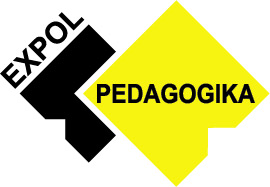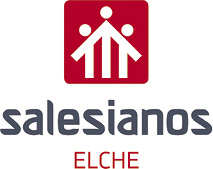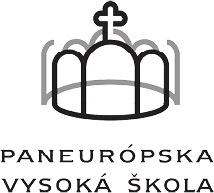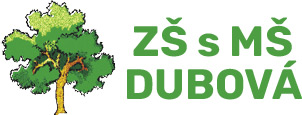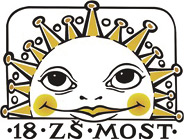Partners
Partners from three European countries – from Slovakia, the Czech Republic and Spain – are working together on the project. Two universities with an international reputation, four elementary schools and two renowned publishing houses will ensure quality outputs in the field of Mental Health, mainly aimed at supporting students and teachers of lower secondary education.
EXPOL PEDAGOGIKA, Ltd.
EXPOL PEDAGOGIKA, s.r.o. (hereinafter referred to as "Expol") is a professional publishing house operating in the field of education and training. It is part of the Klett Group, headquartered in Stuttgart, Germany. The Klett Group is one of the leading companies focused on education in Europe.
Expol was founded in February 1997 as a textbook publisher. It has been one of the largest publishers of textbooks in the Slovak Republic for 27 years. In its portfolio, it has more than 2270 titles, textbooks and workbooks with the approval clause of the Ministry of Education intended for primary schools, schools for children with special needs, secondary vocational schools and gymnasiums.
Through state investment in public schools, Expol currently has 11% of the primary school market, 94% of the special needs school market, 58% of the secondary school market and 28% of the vocational secondary school market.
Expol also prepares supporting educational materials - methodology for teachers for individual textbooks. Since 2017, Expol has been organizing educational seminars for teachers focusing on working with individual textbooks and supporting materials. During the COVID pandemic, Expol started preparing webinars, podcasts and online training programs for teachers, which became new products in our service portfolio.
Every year, Expol implements annual contracts with the Ministry of Education and annually sends an average of 172,000 textbooks for individual schools.
Currently, it has 7 full-time employees, a wide base of external collaborators, experts in the field of upbringing and education. External collaborators are mostly experts on specific topics with many years of experience and are known and accepted in this field.
Expol has experience with Erasmus + projects as both coordinator and partner:
- the STARS project (Successfully Teaching Astronomy in Schools) 2017-2020, which was aimed at supporting astronomy teachers in lower secondary education through innovative materials. The project resulted in a Methodical Guide for Teachers, a Training Program for Teachers, an Online Platform and a Concept of Astronomical Education Program
- LIRE (Language Interpretation through REading) project 2020-2022, which provided practical examples of lesson plans, tips and activities for working with simplified reading books in English
- BEEVET 2019 project - interactive training materials on green, sustainable and energy-efficient construction for students of upper secondary education
- Innovative Steps 2022 project - interactive training materials on the topic of Sustainability, Healthy Nutrition and Environmental Education for students of lower secondary education
Miguel Hernández University of Elche, Spain (UMH)
Miguel Hernández University of Elche (UMH) is a public university founded in 1996, open to the world, offering prestigious education, excellent research and quality services enabling the comprehensive development of its students and their integration into the labor market.
UMH offers 28 bachelor's and 51 official master's degrees adapted to the European Higher Education Area in the fields of arts, experimental and technical sciences, engineering and health and social sciences at its four university campuses (Elche, Altea, Orihuela and Sant Joan d. 'Alacant).
UMH is equipped with the most modern infrastructure and technological equipment, which enables the development of new methodologies applicable to all study programs.
UMH participated in several international projects on the topic of creating a system to improve the quality of higher education systems.
She is currently involved in the IMIM Foundation's "PROMHES-U" project entitled "Promoting Mental Health Among University Students: E-Health Technologies for Personalized Prediction and Prevention of Adverse Mental Health". It investigates health problems among university students using web-based surveys, outpatient assessments and experimental interventions.
Selected research projects in relation to the project topic:
- 2019-1-ES01-KA203-064661 - Erasmus+ KA2 Strategic partnerships for higher education - U4INCLUSION (Universities for work inclusion of people with mental disabilities)
- 400618852 - Capacity building Erasmus+ KA2 for youth - Finding stories that can span the borders of our planet
- KA220-HED-23F8C7EC – Erasmus+ KA2 cooperation partnerships in higher education - XL (Extended education for higher education teachers and trainers)
- ERASMUS-SPORT-2021-SCP-101049878 Erasmus+ KA2 -IDEAL2.0 (Inclusive and fair sport for people with autism and intellectual disabilities)
Salesianos San Rafael, Spain
Salesianos San Rafael, was founded in 1963. The school is located on Porta de la Morera in Elche, in front of the Jardín del Huerto del Cura, which provides a natural environment for school life. It was in this school that the presence of the Salesians in Elche began more than 50 years ago. The official name of the school is the Society of Saint Francis de Sales, commonly known as the Salesians of Don Bosco (SDB).
Early childhood and primary education classes are taught at San Rafael with 18 primary units (3 at the 1-6 level), 6 children's units (2 at the 3, 4 and 5 year level) and two support classes. Integration allows the school to pay attention to the diversity of students.
The school has 25 classroom teachers, 75 pupils aged 10-11 and 32 pupils with special needs.
In addition to the necessary classrooms and facilities, the school also has its own kitchen, school canteen, sports hall and chapel/social room for the center's own celebrations. It also has a computer room, a music room and separate recreation areas for pre-school and primary schools, which means that the integration of the little ones is gradual.
After school, the center offers a variety of extracurricular activities, making students and their families feel "at home" in the Salesian environment.
The San Rafael School has the Salesian Center of San José Artesano as its affiliation center for compulsory secondary education. The aim of the center is to educate with a preventive system, to dream of a better world. He improves the living conditions of the young people of his time, committed to their destiny, with the aim of transforming society.
The mission of the schools of the Province of the Salesians of Mary Help of Christians is to offer comprehensive quality education, based on the values of the Gospel and the educational system of Don Bosco, with the aim of shaping all dimensions of personality for building a new model of society.
In this educational process, the Educational-Pastoral Community presents a model of personal growth and development to every young person, which is oriented towards the discovery of their own life project, in which they find meaning and inclusion.
The school gives personalized attention to each young person, with special attention to the most disadvantaged and needy in an open and inclusive environment. He pays attention to the development of physical, cognitive, emotional and spiritual skills of students, through active programs and methodologies. It has a preventive system as a model of education and relationships within the Educational and Pastoral Community, supports young people in their integration into the world of work.
Selected innovative projects in relation to the project topic:
- "Emotional" (a program for the development of emotional skills as well as their management)
- "Valents" (bullying prevention program) - is part of the daily routine of the educational process and support for students
- recently launched socio-emotional management program promoting "inclusive playgrounds".
In addition, the center serves students with cognitive and learning disabilities and strives to be inclusive to the greatest extent possible.
The school believes that it is important to prevent mental problems in both boys and girls and as an educational community to know how to detect these situations in time in students, as well as how to manage them. Delving deeper into the topic of learned helplessness will certainly be beneficial.
In the center, one meeting a week is dedicated to tutoring. These meetings are organized and organized. The aim of these meetings is to improve group cohesion, take care of students' mental health, develop emotional competences: emotional awareness, emotional regulation, self-management, interpersonal intelligence, life skills and well-being. In addition to communication styles, there is also psychoeducation about bullying, education about values such as tolerance and respect. The aim of these meetings is to improve the cohesion of the group and take care of the mental health of the students.
Pan-European University (PEU)
The Pan-European University (PEU) is a private university offering higher education at all 3 levels of study in 20 accredited study programs at its 5 faculties. Since its establishment in 2004, more than 12,000 students have graduated from PEU.
A wide range of study programs, modern and technologically well-equipped premises, as well as the inclusion of top academic staff offer their students a practically oriented education. The faculties were created gradually in response to the needs of the university market in chronological order: Faculty of Law (2004), Faculty of Economics and Business (2005), Faculty of Media (2007), Faculty of Informatics (2009) and Faculty of Psychology (2011). As the only private university in Slovakia, PEU is authorized to offer a PhD. study and at the same time qualified candidates can pursue a professional doctorate, habilitation (docent) and inaugural (full professor) procedures.
The Faculty of Psychology, founded in 2011, is the only one of its kind in Slovakia. It offers full university education in all 3 cycles – bachelor's, master's and doctoral. In addition, a professional doctorate (PhDr.) can be obtained in a special procedure.
Our partners from the field of practical psychology management enable our students to share their first-class expertise in the field of providing psychological services - the Slovak National Center for Human Rights, the League for Mental Health and professional associations and chambers of psychologists and psychotherapists. The Faculty of Psychology consists of 3 departments (Department of School and Work Psychology, Department of Clinical Psychology and Department of General Psychology) and has 4 supporting departments (Centre of Positive Psychology, Academic Counseling, Psychological Library and Psychological Laboratory). Currently, the number of full-time academic employees is 19 + 9 doctoral students and many external collaborators (approx. 20-30).
FPs focuses on several areas of research, namely school and educational psychology, clinical and health psychology, work and organizational psychology, counseling and general psychology. Faculty members participate in extensive research based on applied positive psychology in schools: social-emotional health of primary and secondary school students and teachers and university students, their subjective experience of happiness and well-being. These research projects continuously bring valuable publication outputs, as well as practical benefits for the schools involved in these projects - students and teachers (teaching materials for teachers in the field of student health and well-being, initial and/or further education of teaching staff).
Selected research projects in relation to the project topic:
- Socio-emotional health of teachers as an important psychological indicator of the school
- The impact of an inclusive elementary school on the mental health and personal development of pupils with special educational needs and intact pupils. (FPs as the main researcher, Ministry of Education, Science, Research and Sport of the Slovak Republic, cooperation with the Faculty of Education of the Matej Bel University in Banská Bystrica)
- Cross-cultural School Climate Study II." (FP as co-investigator, international cooperation, ISPA principal investigator)
- Support for teachers to face the challenge of distance learning (RP as co-investigator, international cooperation Lithuania, Latvia, Erasmus+)
The Pan-European University has many international contacts, especially with the International School Psychology Association, the European Federation of Psychological Association, the Czech and Slovak Association of School Psychology, as well as contacts with the Ministry of Education and schools. In the project, he will cooperate with a Spanish university and a Spanish school, as well as schools in the Czech Republic. The experiment will use the same methods to compare the social-emotional health and well-being of pupils in these 3 countries.
Primary school with kindergarten Dubová, Slovakia
Elementary school with kindergarten, Dubová 1 is a state elementary school with a kindergarten. It was established in 1958. It provides education for children aged 3 to 6 years, formal education in lower classes for pupils aged 6 to 10 years and in higher classes for pupils aged 11 to 15 years. The number of employees is 50. The school has 18 classroom teachers, two school psychologists, 50 pupils aged 10-11 and 40 pupils with special needs. The vision of the school is "School for everyone" and its mission is to increase students' interest in education in order to maintain success in life.
Since 2015, the school has had an inclusive program and a team of psychologists at the school who, together with the students, support their education to overcome learning barriers. The team works with pupils to motivate them to learn, taking into account their individual needs. The school has experience in maintaining the mental health and high level of students' life skills in the educational process.
During practice, the school noticed an increase in the number of students who lose the ability to concentrate, start to feel helpless and demotivated due to psychological problems, loss of security and lack of support in their immediate environment.
As of September 2023, all school students are potentially considered at risk, so the school's target group has grown. Pupils were identified with helpless behavior before the global pandemic of COVID-19 and even more so after it. Therefore, the school is working on support mechanisms for students at risk.
The school deals directly with the mental health and well-being of pupils in the curriculum in the subjects – early community, social skills training. Outside of school, she organizes training in cooperation with the class teacher to develop good relationships between students and to maintain their mental health.
Private elementary school Paneurópska, Slovakia
An inclusive elementary school (in Slovakia, pupils are aged between 6 and 15) is a school with inclusive education in the experimental verification of the Slovak Kindergarten. The school has 25 employees - teachers, assistant teachers, special educators, three school psychologists, 10 classroom teachers, 150 students (96 students aged 10-11 years) and 10 students with special needs.
Regular students are educated together with students with special needs (students with developmental learning disabilities, e.g. dyslexia, dyscalculia, emotional disorders, e.g. depressive behavior disorder, anxiety disorder, elective mutism, ADHD and autism spectrum disorders, as well as intellectual disabilities) . Pupils with special needs entered this school with negative experiences from previous school life at other primary schools, many of them with experiences of verbal and physical bullying, cyberbullying and violence.
The inclusive elementary school in the educational process is based on the aspect of C.R. Rogers' concept of human-centered education and M. Zelina's concept of creative-humanistic education. The elementary school with an inclusive type of education follows the state educational program for the 1st grade of elementary schools (ISCED 1) and the state educational program for the 2nd grade of elementary schools (ISCED 2). The school creates classes with a smaller number of students (8-15). Intact pupils are educated together with pupils with SEN. The school has meetings with psychologists and teachers also work with preventive programs, mainly in ethical education.
The concept of this school with inclusive education is built on five basic pillars:
1st pillar: Humanistic psychology and pedagogy in an inclusive school
2nd pillar: Positive psychology applied in an inclusive school with an impact on prevention and preventive programs
3rd pillar: Multidisciplinarity, multidisciplinary team of experts in cooperation in an inclusive school
4th pillar: The new role of the school psychologist in an inclusive school
5th pillar: New modern forms of school and parent cooperation in an inclusive school
Elementary school Most, Okružní, Czech Republic
The school was founded on September 1, 1992. Currently, approximately 600 students attend the school, of which 72 are students with a different mother tongue, and work with this target group is entrusted by superior authorities. It has 23 classroom teachers, 128 pupils aged 10-11.
They focus on pupils with a different mother tongue and on their support in a different cultural environment. The school also implements measures from the School Failure Strategy. The strategy focuses on students at risk of failure in education and their mental health. The school also cooperates with professional organizations from the non-profit and public sector, while using the expertise of professional employees. The school also has a social pedagogue (school social worker) who, in cooperation with teachers, monitors the connection between the social situation and the success of the pupils' education and mental health. Based on the findings, it provides appropriate interventions, visits families and recommends the use of social, community and professional services.
The main goal of the school is to minimize the risks resulting from school failure for children in lower grades, which may manifest in later grades. The school tries to support students' motivation to continue their education and build their resilience and self-confidence when obstacles to learning appear.
At the school, they identified the need to strengthen the competences of employees in supporting the well-being and mental health of children, in identifying and expanding new ways of working that focus on self-confidence and resilience. It is also necessary to know new approaches that are used in other institutions.
The school operates in a region that suffers from social exclusion. This fact is reflected in the high degree of social exclusion of families and also pupils. He has experience with interventions not only of an educational nature, but also with interventions in the social field (school social work).
Publishing House Dr. Josef Raabe, s.r.o., Czech Republic
The company was founded in 1996 as a provider of various educational products with a focus on the development of teaching materials for school principals, teachers and students. The company's team consists of experts in the fields of education and training, PR and publication development.
Publishing House Dr. Josef Raabe s.r.o. has published more than 1,300 professional publications.
It works closely with more than 1,100 leading experts – authors, editors, lecturers and reviewers; it ensures high efficiency and practically oriented materials in the field of school management. It offers educational programs for kindergarten teachers and for teachers of the first and second stages of basic education, as well as for school principals. By organizing professional conferences and workshops, it also facilitates targeted discussions between leaders in the field of education and other experts on current topics at the national and European level.
Selected innovative projects on which the publishing house worked:
- DEveloping the COgnitivE Potential of Preschoolers from Disadvantaged Backgrounds (DECODE)
- Good start to school - Support of Early Childhood Care (GSS) (2015–2018). The project focused on increasing the competences of early childhood teachers to assess and adequately address the level of skills and maturity of children before entering primary school, thereby ensuring a smooth transition. The project was evaluated as an example of best practice, i.e. – 94/100 – during the final evaluation.
- The WELCOME project (from the English WE Learn and COMmunicate Ensemble - loosely translated as “we learn and communicate”) (2016 – 2019) focused on the full integration of children with diverse educational needs through an inclusive comprehensive approach, which includes addressing the needs of teachers in the area of resources and competencies for the successful management of a heterogeneous class/group in regular preschool settings. The project was evaluated as an example of best practice in the final evaluation, i.e. 98/100.
Learning by Doing – development of key competences in preschool education (abbreviated ABC for kindergartens) (2020 – 2023). The aim of the project was to improve the quality of preschool education by introducing innovative approaches and procedures, ensuring the comprehensive development of the competences of a preschool child. This was achieved by supporting kindergarten teachers in gaining knowledge on how to effectively apply project-based learning and activity-based learning in preschool education.


